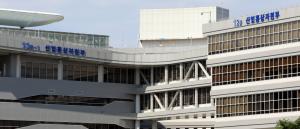Promote customized microgrid projects to build energy systems reflecting regional characteristics
Considering the inevitable increase in regenerative E output control in Jeju Island, promote minimization measures

[Energy Times]The government has come up with short-term measures to revitalize distributed energy in consideration of the situation in Jeju Island, where a distributed energy system is critical due to the high proportion of renewable energy. The focus is on increasing the capacity to accommodate renewable energy.
The Ministry of Trade, Industry and Energy has prepared measures to revitalize distributed energy, led by the region, as social demand for distributed energy produced and consumed near demanded areas is increasing due to increasing social conflicts related to the construction of large-scale power plants and transmission lines. (Jeju-si, Jeju-si) announced.
The measures announced on this day reflect the short-term implementation of the distributed energy activation roadmap ▲ realization of a regional-led energy system ▲ establishment of a decentralized energy infrastructure ▲ minimization of renewable energy output in Jeju.
First, the Ministry of Industry, in order to realize a regional-led energy system, will supply and connect various distributed power sources in the village, and promote a customized microgrid project so that a variety of energy systems reflecting regional characteristics can be established.
As part of this, the Ministry of Industry established a’Regional Energy Center’ to strengthen local energy implementation capabilities, and advanced regional energy plans with local governments and specialized agencies, while also pursuing areas that require systematic management of distributed resources due to the high proportion of distributed energy. By designating it as a’distributed energy special zone’, it plans to allow special cases in power transactions such as demonstration of the Virtual Power Plant and Distribution System Operator, and direct transactions between producers and consumers.
Along with this, the Ministry of Industry, considering the fact that the power supply exceeding the power demand occurs in the aftermath of the increase in renewable energy in Jeju Island, the renewable energy output control inevitably increases, and is pushing ahead with measures to minimize this.
Jeju output control by year is 3 times in 2015 (control capacity 152MWh), 14 times in 2017 (1300MWh), 46 times in 2019 (9223MWh), and 77 times in 2020 (10,9449MWh).
The Ministry of Industry, HVDC #1·2, which connects Jeju and land, sent electricity only from land to Jeju, but decided to transmit surplus power in Jeju Island to land by securing reverse transmission performance. This measure is expected to increase the capacity of renewable energy in Jeju Island to a maximum of 342MW this year.
In addition, the Ministry of Industry predicted that when the completion of HVDC #3, capable of real-time two-way transmission according to the power supply and demand between Jeju and the land, will be completed at the end of 2022, the capacity to accommodate renewable energy in Jeju Island will increase by 400MW.
In addition, the Ministry of Industry decided to build a system stabilization energy storage system (ESS) of 23MWh, which can accommodate additional renewable energy with a capacity of 150MW, starting from Jeju Island this year to mitigate the volatility of renewable energy.
In addition, the Ministry of Industry and Industry also uses P2G (Power to Gas) technology that converts surplus power into hydrogen as a new flexible resource that will eliminate surplus power from renewable energy, P2H (Power to Heat) technology that converts power to heat, and V2G (Vehicle to Gas) technology that uses electric vehicles as ESS Grid) technology, etc., decided to be demonstrated in Jeju Island.
An official from the Ministry of Industry said, “The Ministry of Industry is planning to organize and operate the Jeju Energy Council in order to implement this measure smoothly, and establish a roadmap for activating distributed energy in the first half of this year, including mid- to long-term system improvement measures such as market system improvement and incentive system. I will announce it.”
He added, “The Ministry of Industry will also review and implement a special law for activating distributed energy, which is the legal basis to systematically support the transition to a distributed energy system in the future.”
On the other hand, the government has proposed a transition to a decentralized energy system through the 3rd Basic Energy Basic Plan confirmed in June 2019 and the 2050 carbon neutral promotion strategy confirmed in December 2020. It plans to prepare a roadmap for activating distributed energy through policy research, gathering opinions through local government/industry briefing sessions, and consultations with the party government.
Copyright © Energy Times Unauthorized reproduction and redistribution prohibited
